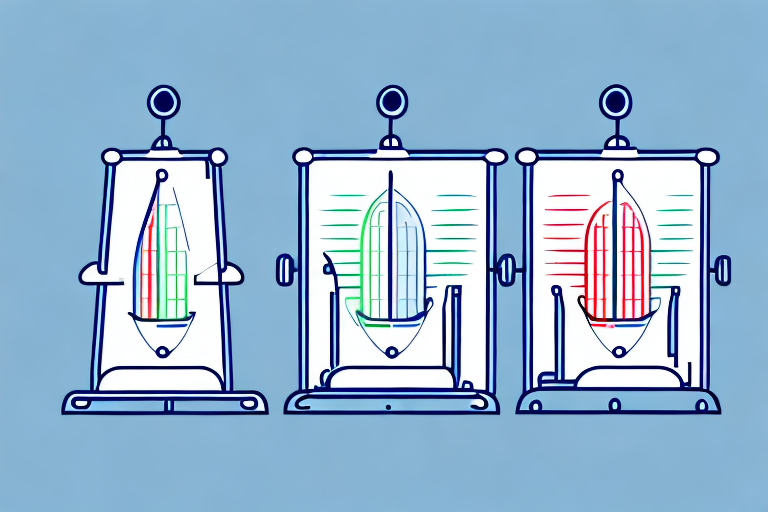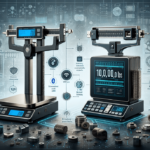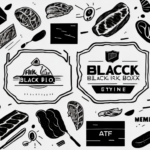Introduction: The Critical Role of Weighing Scales in Industrial Settings
Accurate weighing is fundamental in industrial environments, ensuring quality control and compliance with regulatory standards. In manufacturing, scales measure raw materials, product components, and finished goods for inventory management and quality assurance. Retail settings rely on scales to weigh products like fruits, vegetables, and meats, ensuring accurate pricing and customer satisfaction.
In the transportation sector, scales verify that vehicles are not overloaded, preventing safety hazards and equipment damage. The mining industry also depends on scales to measure extracted minerals and ores, determining their value and facilitating precise payments to suppliers.
Advancements in technology have enhanced the sophistication and accuracy of weighing scales. Digital scales now offer precise measurements, minimizing errors and increasing efficiency. Additionally, some scales feature integrated software for data tracking and analysis, providing valuable insights into production processes and inventory management.
According to Statista, the global market for industrial weighing scales is projected to grow steadily, driven by the increasing demand for automation and precision in various industries.
Product Overview: CAS RW-L Series and Cardinal Scale
CAS RW-L Series
The CAS RW-L Series is engineered for industrial applications, offering durability and precision to meet the demands of manufacturing environments. Key features include high capacity, user-friendly interfaces, advanced connectivity, multiple weighing modes, comprehensive data management, and portability.
Cardinal Scale
Cardinal Scale offers a versatile range of scales suitable for both industrial and retail environments. Notable features include durable construction, advanced functionalities, large display screens, user-friendly design, customizability, and high load capacity.
For more detailed information on the features of these scales, you can visit the official websites:
Feature Comparison
CAS RW-L Series Features
- High Capacity: Measures up to 10,000 lbs with high accuracy.
- User-Friendly Interface: Easy-to-read digital displays and intuitive keypads for quick data entry.
- Advanced Connectivity: Supports Wi-Fi, Bluetooth, and Ethernet for seamless integration with other systems.
- Multiple Weighing Modes: Includes counting, checkweighing, and percentage weighing for versatile applications.
- Data Management: Equipped with printing capabilities and network connectivity for efficient data handling.
- Portability: Built-in rechargeable battery ensures functionality in areas lacking power sources.
These features make the CAS RW-L Series a robust solution for industries requiring reliable and flexible weighing equipment.
Cardinal Scale Features
- Durable Construction: Robust build with powder-coated steel finishes to endure harsh conditions.
- Advanced Functionalities: Includes ticket printing, barcode scanning, and wireless connectivity for enhanced operational efficiency.
- Large Display Screens: Easy-to-read displays facilitate quick and accurate weight readings.
- User-Friendly Design: Intuitive interfaces ensure ease of use, reducing the need for extensive training.
- Customizability: Options for waterproof or explosion-proof scales cater to specific industry requirements.
- High Load Capacity: Capable of handling weights up to 5,000 kg, suitable for heavy-duty applications.
The Cardinal Scale's emphasis on durability and advanced features makes it a preferred choice for businesses seeking reliable and customizable weighing solutions.
Pricing Comparison
Both the CAS RW-L Series and Cardinal Scale offer competitive pricing structures, with the CAS RW-L Series typically being slightly more affordable. However, the cost difference is marginal and varies based on the specific features and capabilities required by the business.
It's crucial to consider factors beyond price, such as accuracy, durability, and ease of use. Additionally, evaluating the warranties and customer support services provided by each brand can influence the overall value and long-term investment.
For detailed pricing information, please refer to:
Ease of Use Comparison
Both the CAS RW-L Series and Cardinal Scale are designed with user-friendliness in mind, featuring straightforward interfaces. However, there are distinct differences:
- CAS RW-L Series: Features a basic keypad and display, making it easy to operate for most applications. Its simplicity ensures that users can quickly adapt without extensive training.
- Cardinal Scale: Offers a more complex interface with additional features, which may require more time to master. However, it provides benefits such as larger display screens and advanced connectivity options.
The choice between the two depends on user preferences and specific operational needs. Businesses prioritizing simplicity may lean towards the CAS RW-L Series, while those requiring advanced functionalities might prefer Cardinal Scale.
Accuracy Comparison
Accuracy is paramount in weighing scales, and both brands excel in this aspect:
- CAS RW-L Series: Renowned for high accuracy, capable of measuring weights down to 0.1 lb. This precision is ideal for industries where exact measurements are critical, such as pharmaceuticals and jewelry.
- Cardinal Scale: Also offers precise measurements with a capacity of up to 10,000 lbs. It is well-suited for industries requiring the weighing of heavy objects, including shipping and construction.
While both scales provide exceptional accuracy, the choice hinges on the specific needs of the industry or business application.
Durability Comparison
Durability ensures long-term reliability and minimal maintenance costs. Both the CAS RW-L Series and Cardinal Scale are built to withstand rigorous industrial environments:
- CAS RW-L Series: Features a rugged stainless steel platform and boasts an IP68 rating, indicating high water resistance suitable for wet environments like food processing plants.
- Cardinal Scale: Constructed with powder-coated steel, offering resistance to corrosive conditions with an IP66 rating, protecting against water splashes and dust.
Additionally, the CAS RW-L Series supports a maximum load capacity of 300kg, while Cardinal Scale handles up to 5,000kg, making Cardinal Scale more appropriate for heavy-duty applications.
Customer Support Comparison
Reliable customer support is essential for ensuring smooth operations and addressing any technical issues:
- CAS RW-L Series: Offers a two-year warranty and has an extensive network of authorized dealers and service centers for on-site support and maintenance.
- Cardinal Scale: Provides a one-year warranty, complemented by a strong network of service centers and technical support teams.
Evaluating the quality and accessibility of customer support can significantly impact the user experience and long-term satisfaction with the weighing scale.
Case Studies
Implementing CAS RW-L Series in a Manufacturing Facility
At a leading manufacturing facility producing industrial equipment, the CAS RW-L Series was integrated to measure raw materials and finished products. The scale's high accuracy ensured that all products met stringent quality standards, reducing waste and rework costs. Its durable construction allowed it to perform reliably in a harsh manufacturing environment, handling heavy loads without performance degradation.
Advanced features like data printing and network connectivity provided valuable insights into inventory management and process control. By leveraging these capabilities, the facility optimized its production workflows and enhanced overall efficiency.
For more insights on successful implementations, visit the ShipScience Case Studies page.
Utilizing Cardinal Scale in a Retail Setting
A large grocery store chain adopted the Cardinal Scale to weigh products such as fruits and vegetables. The scale's advanced functionalities, including ticket printing and wireless connectivity, streamlined checkout processes and ensured compliance with pricing regulations. The large, clear display facilitated quick readings, enhancing the customer experience by reducing wait times.
The durable construction of the Cardinal Scale withstood continuous use, maintaining accuracy and reliability throughout high-traffic periods. This implementation led to improved operational efficiency and increased customer satisfaction.
Discover more retail success stories on the ShipScience Case Studies page.
Conclusion: Selecting the Ideal Weighing Scale for Your Business
Choosing the right weighing scale hinges on factors such as industry requirements, application specifics, and budget constraints. Both the CAS RW-L Series and Cardinal Scale offer robust solutions tailored to different needs:
- CAS RW-L Series: Best suited for businesses prioritizing high accuracy, advanced connectivity, and durability in wet or harsh environments.
- Cardinal Scale: Ideal for industries requiring heavy-duty capacity, advanced functionalities, and versatile application options.
Carefully assess your business needs and evaluate each scale's features, support services, and overall value to make the best investment.
Expert Opinion: Industry Insights on the Optimal Weighing Scales for Diverse Applications
Industry experts emphasize that the optimal weighing scale depends on the specific application:
- Food Industry: Scales with barcode scanning and wireless connectivity are essential for regulatory compliance and efficient operations.
- Industrial Manufacturing: High-precision scales with rugged construction are crucial for quality control and reliability.
- Retail: User-friendly scales with large displays and printing capabilities enhance customer service and operational efficiency.
Consulting with industry professionals and reputable manufacturers can provide valuable guidance in selecting the most suitable weighing scale for your business needs.






















